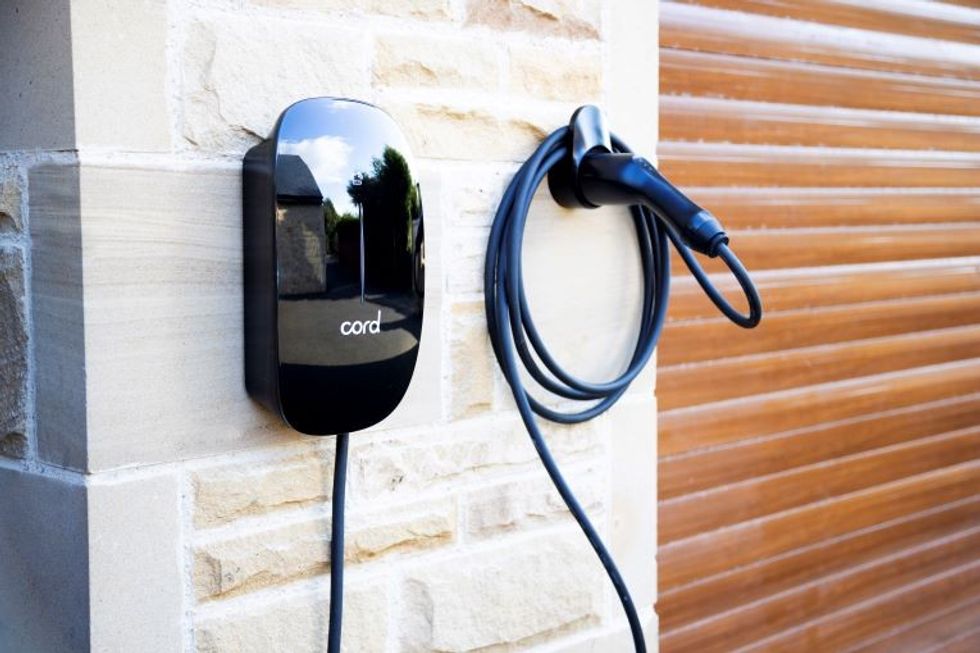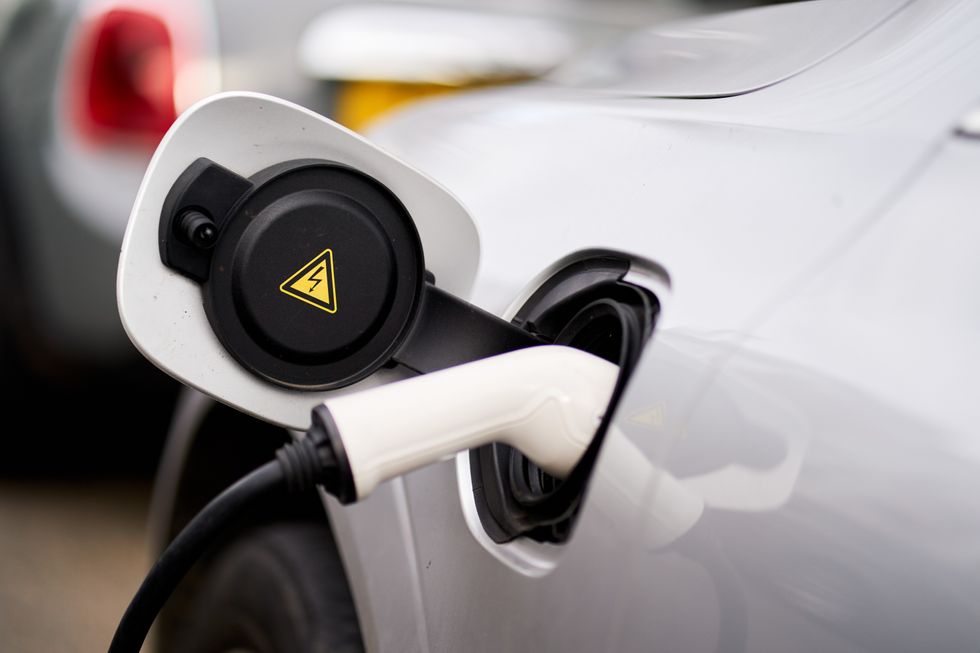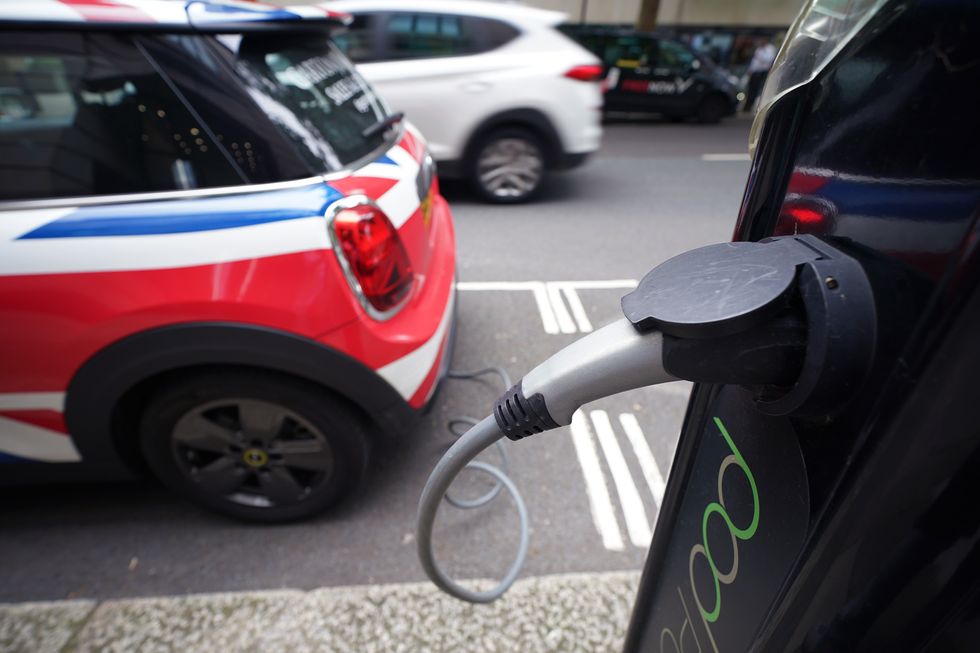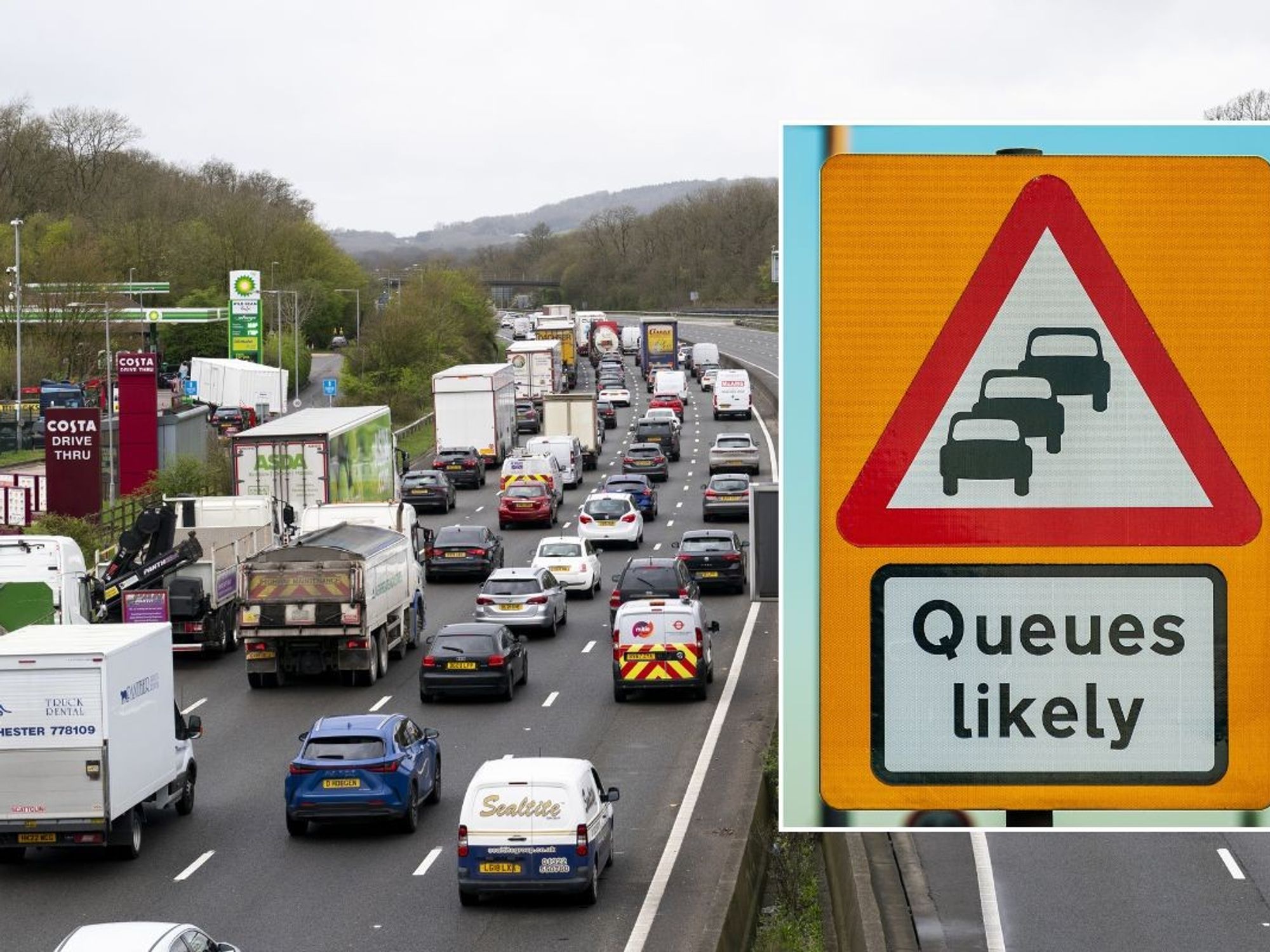Electric car drivers face £379 price hike when charging at home as thousands miss out on savings
Drivers could be saving almost £400 a year by switching tariffs for their home EV charger
'It’s shocking to find that a huge number of electric vehicle owners aren’t using a tariff that could reduce their annual charging bill'
Don't Miss
Most Read
Trending on GB News
Hundreds of thousands of electric vehicle owners could be overspending by almost £400 a year as new data shows that charging their cars at night may be leaving a huge dent in their pocket.
Around 82 per cent of electric car drivers could be overspending by £379 a year on overnight charging because they aren't using an EV-friendly or time-of-use tariff.
Charging a 60kWh electric vehicle battery on a price-capped tariff costs around £13, while owners with a time-of-use deal could save more than £9 per full charge overnight.
Data from the Society of Motor Manufacturers and Traders (SMMT) found that there are more than 1.1 million electric vehicles on the road in the UK, with a further 670,000 plug-in hybrid cars.
Do you have a story you'd like to share? Get in touch by emailingmotoring@gbnews.uk

There are estimated to be around 700,000 home and workplace chargers around the UK
CORDWhile the uptake of electric vehicles does vary quite significantly by region, companies are introducing new tariffs and other measures to make charging as cheap as possible for drivers.
Time-of-use tariffs charge different prices for electricity throughout the day, with higher prices during peak hours when demand is strongest, and smaller prices during off-peak hours, like overnight.
Some variable tariffs can charge around 7p per unit of electricity, which is less than a third of the current 22p cost on a price-capped tariff, Uswitch.com found.
Despite the massive savings on offer, only one in five households with an electric vehicle and 16 per cent of those with a plug-in hybrid are making use of the cheaper tariffs.
Based on the average annual mileage for a UK driver, drivers with a price-capped tariff would pay £552 to travel 7,400 miles when charging every year, compared to just £173 for those with a time-of-use tariff.
Ben Gallizzi, energy expert at Uswitch, said that, like car insurance, drivers should look around to find the right tariff that will suit their needs and energy consumption demands.
He added: “It’s shocking to find that a huge number of electric vehicle owners aren’t using a tariff that could reduce their annual charging bill by hundreds of pounds.
“Too few people are aware of these tariffs, and we’re encouraging households to look into time-of-use deals to see if they can save money."

There are more than 66,000 public EV chargers around the UK
PAAccording to research from Zapmap, there are almost 67,000 public electric vehicle chargers around the UK, while there are more than 700,000 chargers at homes or workplaces.
The cost benefits for motorists can help drivers adjust to charging their vehicles passively overnight rather than relying on the more expensive public charging infrastructure.
Despite this, many Britons already make use of off-peak times to save money. More than a quarter of households run their dishwasher at night, while 12 per cent use their washing machine and tumble dryer.
This is done even though research from Uswitch.com uncovered that 96 per cent of people are not using a time-of-use tariff. This could save motorists £64 a year when using their tumble dryer at night.
LATEST DEVELOPMENTS:
Gallizzi continued, saying: “Reach out to your current supplier to see whether a time-of-use tariff, or an electric vehicle specific tariff would be a better option for you.
“If a time-of-use deal isn’t right for you, most households can still protect themselves from rising energy costs this winter by choosing a fixed deal."
According to the latest data from RAC Charge Watch, a driver fully charging an electric car with a 64kWh battery at home would pay a maximum of £14.49, based on Ofgem's capped rates.
This is the lowest maximum price for home charging since the end of March 2022, when prices were as low as £13.86. Prices peaked between July and September last year when it would have cost £19.44.

It costs 24p per mile when using a rapid or ultra-rapid public charger
PAIn comparison, it costs 7p per mile to charge a battery electric vehicle using a 7kW home charger and an Ofgem capped tariff, while a diesel car owner would be paying 18p per mile.
It is, however, more expensive to power an electric vehicle using a "rapid" or "ultra-rapid" charger in public at 24p per mile, although very few motorists rely solely on these.








